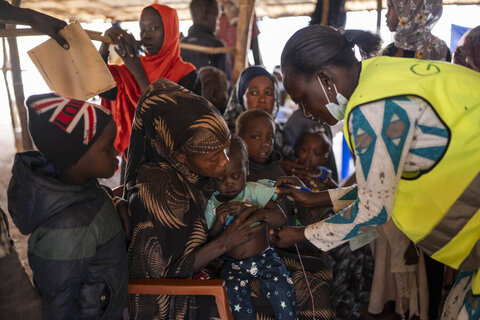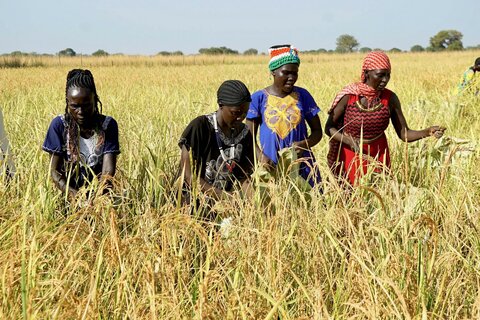South Sudan’s unholy trinity

It never rains in South Sudan. It pours. Quite literally.
Devastating floods have wiped out people's homes and washed away their livelihoods in a country that was still reeling from years of conflict and had also yet to recover from one of the worst drought episodes in recent memory.
Even before the latest floods, it was estimated 4.5 million people would not know where their next meal will come from between September and the end of the year. The number in need was forecast to increase by another million in the new year. But even this total might rise again because of the downpours.
"My home is destroyed, the village school collapsed, the harvest in our fields washed out and our future is uncertain. But I can recover it all, if there is peace."
Tens of thousands of people have now lost their homes and are living in impromptu shelters. Whole towns and villages lie submerged by the rising waters, amid growing concerns of possible disease outbreaks and starvation.
The government has declared a state of emergency — the highest level of alert in the country — while charities and aid agencies such as the World Food Programme (WFP) are ramping up responses to save lives and help those most in need.
A changing climate
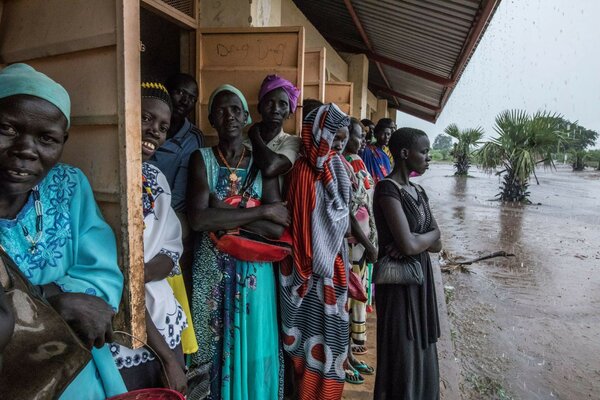
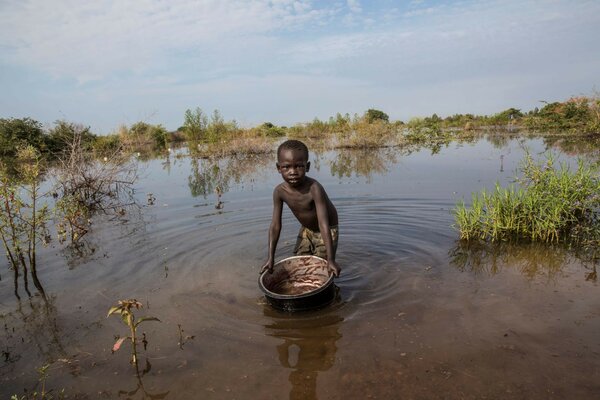
A climate phenomenon known as the Indian Ocean dipole, stronger than any seen in years, has helped to feed the fierce rainstorms and subsequent flooding across much of East Africa and parts of South Sudan — particularly in the states of Jonglei, Upper Nile, Warrap and Northern Bahr El Ghazal.
Despite having little role in contributing to global warming, the country is at once highly vulnerable and little prepared to address the looming threats it brings. Through no fault of its own, South Sudan is now suffering from the vagaries of a changing climate, which exacerbate the already enormous challenges caused by decades of political instability, poverty and persistent food insecurity.

Fertile soils and abundant water make South Sudan one of the richest agricultural areas in Africa, but frequent flooding, droughts and the displacement of millions of people due to fighting have drastically reduced food production, to the point where millions of people are food insecure.

Achol Mabior has seen it all in Makuach village in Aweil Centre, 300 km south of the Sudan border. However, she has not seen rain this heavy in decades. She recounts the days when it rained, and flood waters rose and swept through her homestead.
In an act of defiance, however, she vowed to stay, and has not moved since.
"This is my home, the flood came but we stayed," says Achol. "I will not move to the roadside, it is not secure."
But many people had to make the decision to flee, carrying what little possessions they could salvage from the rising waters to what high ground they could reach. For large numbers, this meant building fragile shacks by roadsides.
Defeated but not destroyed
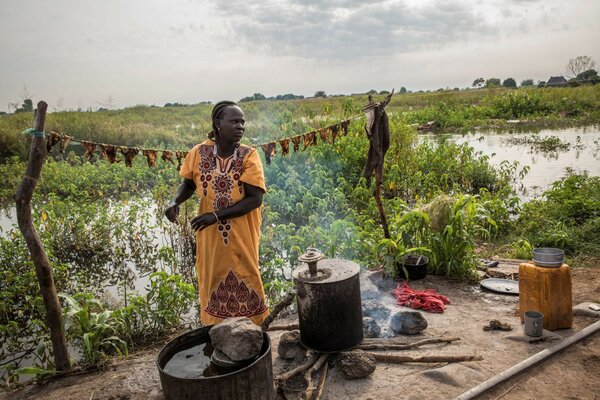
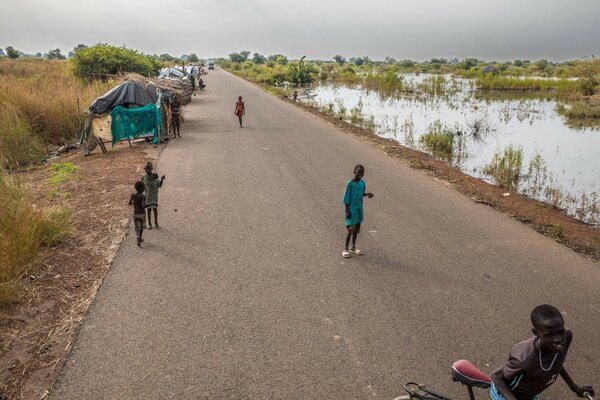
Arach Mabior is one of those who have set up camp by the tarmac road in Aweil Centre.
"We moved here because of the floods," she says. She sounds defeated but what she says next demonstrates the incredible resilience of the South Sudanese people.
"My home is destroyed, the village school where my children attend classes collapsed, the harvest in our fields has been washed out and our future is uncertain, but I can recover it all, if there is peace."
WFP response
On its part, WFP has started an immediate response to meet the needs of people hit by the floods. The roads to Maban County in Upper Nile bordering on Sudan, however, are among the many damaged by the incessant rains.

For the first time in Maban, WFP is using airdrops to deliver food and nutrition supplies. Amphibious All-Terrain Vehicles were ferried in by helicopter and are bringing in nutrition supplies and aid workers. WFP will also start using boats to reach isolated and flooded communities.

"The flooding reduced access to most areas, but food distributions will be rolled out as more and more areas become reachable," says Matthew Hollingworth, WFP's Country Director in South Sudan. "In most of the flooded areas, people were already unable to meet their food needs. It is now a race against time to ensure people receive the assistance they so need."

But donor support is critical. WFP requires more than 19,000 metric tons of food to assist people for the next three months. It would cost US$ 40 million for WFP to provide food and nutrition support and to assist the wider humanitarian community with both logistics and UN passenger flights.
Tough times ahead

With heavy rains forecast for the next four to six weeks, experts fear worse is on its way.
Damaged crops and submerged land might mean depleted harvests and increased pressure on remaining grazing lands. As with the conflict and the drought, the consequences of the floods will be felt long after the water has subsided.
"People need help now," says Hollingworth. "But they also need assistance to help them recover fully, whilst there is need to confront climate change and for that to happen, there is need to keep peace."

